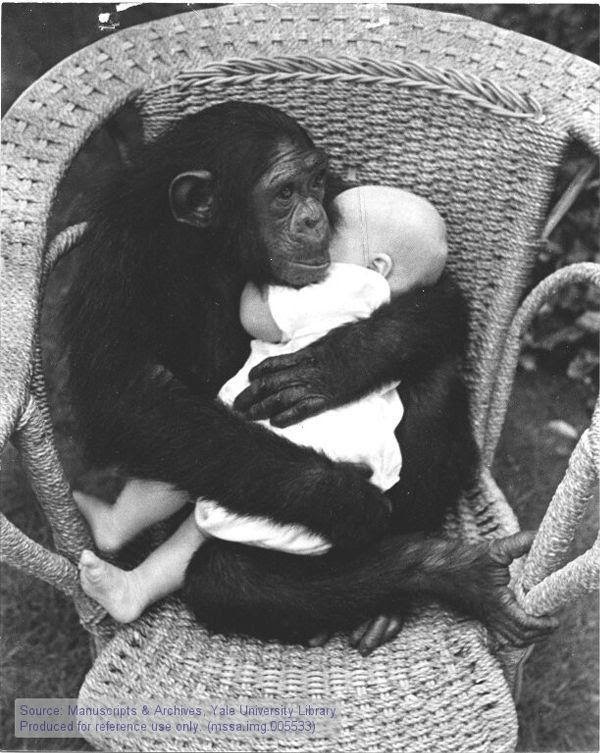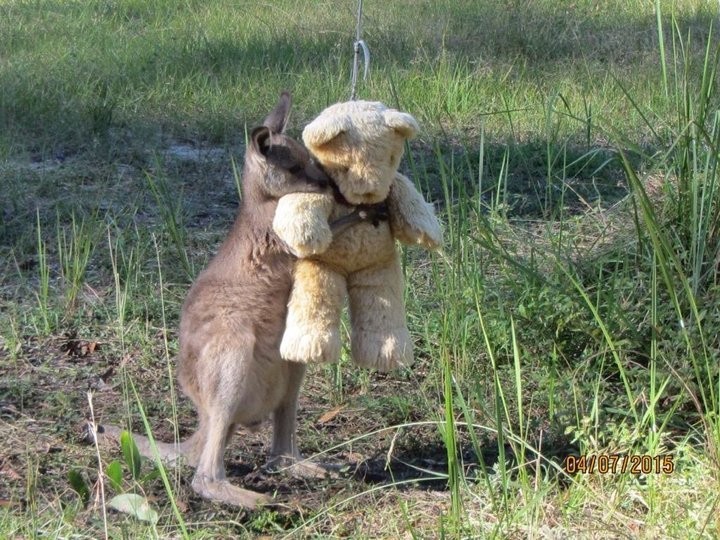



POSITIVE MONEY
Recent Articles



HUG THERAPY
HUG THERAPY
Comment by Rafael Zambrana + February 23, 2017
Comment by Rafael Zambrana + February 23, 2017
CLICK THE PHOTO TO SEE VIDEO


Hugging is healthy
· It helps the body's immune system
· It cures depression.
· It reduces stress.
· It's rejuvenating.
· It has no unpleasant side effects.
· It is God's miracle drug!
· It is all natural, it contains no chemicals, artificial ingredients, no pesticides, and no preservatives!
· Hugging is practically perfect.
· There are no parts to break down, no monthly payments, non-taxable, non-polluting, and of course.. It's fully returnable!
Here are your hugs for the day
· It helps the body's immune system
· It cures depression.
· It reduces stress.
· It's rejuvenating.
· It has no unpleasant side effects.
· It is God's miracle drug!
· It is all natural, it contains no chemicals, artificial ingredients, no pesticides, and no preservatives!
· Hugging is practically perfect.
· There are no parts to break down, no monthly payments, non-taxable, non-polluting, and of course.. It's fully returnable!
Here are your hugs for the day



Adorable image of an orphaned kangaroo called 'Doodlebug' hugging a teddy bear stops the internet in its tracks
-----------------------------------------------
This is Makaia. He is an Australian tree kangaroo ---yep, a kangaroo that lives in a tree that lost his mother at just five weeks old.
With fears of Makaia not surviving alone, the staff at Adelaide Zoo decided to undertake a world first experiment. The zoo found a yellow-footed rock-wallaby to become his surrogate mum — never before attempted with a different species — using a technique known as "cross-fostering." This means the baby kangaroo was popped into the wallaby's pouch.
Luckily, Makaia took well to his new mum and bonded like the little legend he is. Now, he is getting stronger and learning to climb trees, play with toilet paper rolls and generally be a menace.
This is Makaia. He is an Australian tree kangaroo ---yep, a kangaroo that lives in a tree that lost his mother at just five weeks old.
With fears of Makaia not surviving alone, the staff at Adelaide Zoo decided to undertake a world first experiment. The zoo found a yellow-footed rock-wallaby to become his surrogate mum — never before attempted with a different species — using a technique known as "cross-fostering." This means the baby kangaroo was popped into the wallaby's pouch.
Luckily, Makaia took well to his new mum and bonded like the little legend he is. Now, he is getting stronger and learning to climb trees, play with toilet paper rolls and generally be a menace.
The Second Nine Months
Exterogestation and the need to be held.
By Elizabeth Antunovic
A joey stays in his pouch until his “exterior gestation” is complete and he is able to move away from his mother on his own. Like a joey, human infants are also born immature. In fact, human infants actually remain helpless longer than infants of any other species and, like some marsupials, must also go through a distinct period of gestation outside of the womb. Although birth may be seen as a separation of mother and infant, babies need anything but separation. Nature intended that they be held on their mother’s bodies after birth until they complete their gestation out of the womb. This period of exterior gestation needs to be respected not just as a sentimental matter, but as one that has a profound and major impact on an infant’s physical, emotional, and psychological development.
Exterogestation and the need to be held.
By Elizabeth Antunovic
A joey stays in his pouch until his “exterior gestation” is complete and he is able to move away from his mother on his own. Like a joey, human infants are also born immature. In fact, human infants actually remain helpless longer than infants of any other species and, like some marsupials, must also go through a distinct period of gestation outside of the womb. Although birth may be seen as a separation of mother and infant, babies need anything but separation. Nature intended that they be held on their mother’s bodies after birth until they complete their gestation out of the womb. This period of exterior gestation needs to be respected not just as a sentimental matter, but as one that has a profound and major impact on an infant’s physical, emotional, and psychological development.
It's literally a matter of life and death to touch babies while growing up, that's how important is to hug them and caress them. British King Frederick II during the 13th century conducted an experiment with fifty infants to determine what language they would speak if never permitted to hear the spoken word. So he assigned foster mothers to bathe and suckle the children but forbade them to fondle pet, or talk to their charges. The experiment failed because all fifty infants died.
We learned hundreds of years later that babies who aren’t touched and cuddled often fail to thrive.
The world has recently been exposed to yet another example of neglected and abused children. . Mary Carlson, a researcher from Harvard Medical School, observed an overcrowded Romanian orphanage, where row upon row of babies lay neglected in their cribs. The staff was hopelessly overworked, so the babies were rarely touched even at mealtime. What struck Carlson was the silence in the nursery. There was no crying, no babbling, not even a whimper. Upon physical examinations given at age two, Carlson found that the babies had unusually high amounts of a stress hormone in the blood called cortisol, which is known to damage the brain. Growth was stunted, and the children acted half their age.
It isn’t sufficient to feed, clothe, and care for the physical needs of children. It is now clear that touching and nurturing are critical to their survival.
We as adults also are in need of touch as well, even in the form of hugs to give-receive an important exchange of life energy.
We learned hundreds of years later that babies who aren’t touched and cuddled often fail to thrive.
The world has recently been exposed to yet another example of neglected and abused children. . Mary Carlson, a researcher from Harvard Medical School, observed an overcrowded Romanian orphanage, where row upon row of babies lay neglected in their cribs. The staff was hopelessly overworked, so the babies were rarely touched even at mealtime. What struck Carlson was the silence in the nursery. There was no crying, no babbling, not even a whimper. Upon physical examinations given at age two, Carlson found that the babies had unusually high amounts of a stress hormone in the blood called cortisol, which is known to damage the brain. Growth was stunted, and the children acted half their age.
It isn’t sufficient to feed, clothe, and care for the physical needs of children. It is now clear that touching and nurturing are critical to their survival.
We as adults also are in need of touch as well, even in the form of hugs to give-receive an important exchange of life energy.
The Importance of Physical Affection for Children and Adults Alike
By Diane Koopman
The significance of physical human interaction is underestimated. We take connecting through touch for granted, limiting contact to habitual and circumstantial opportunity with our intimate partners, offspring, close family and friends. We may peck our partners good morning, rush through dressing and grooming our children, greet the people closest to us with a customary hug or hand shake. We protect our personal boundaries from strangers at all costs. We reduce physical affection to a mundane necessity; a meaningless custom. In doing so we fail to acknowledge how important it is for the survival of our species; for the well being of our physical, emotional and mental health; to actually touch another human being and convey important messages that words and deeds simply don’t deliver.
Humans practice what is known as pro social behavior, which is a voluntary action that benefits another person. In her article The Science of Touch and Emotion, Maria Alvarellos from the Berkeley Science Review says:
“By engaging in acts of trust and cooperation, social groups survive. Parents and offspring form attachments, and individuals act in mutually beneficial, altruistic ways to sow trust between one another.”
Touching and physical affection is a vital part of this process of pro social behavior. Various studies have shown that the need for skin to skin contact and warmth can improve weight gain in premature babies and touch can convey a variety of complex emotions including empathy and gratitude. The simple act of touching someone has been shown to improve cognitive and emotional development, including reducing susceptibility to depression and reducing some behaviors associated with Alzheimer’s Disease. Being affectionately touched can even contribute to a stronger immune system.
Physical affection towards our children is highly promoted and encouraged, not only from a bonding perspective, but also for the promotion of development and well being. Skin to skin contact immediately after birth has been known to promote healing after such an intense experience, regardless of the complexities and unplanned events that birth sometimes entails. Kangaroo Care has been widely studied and is proven to regulate body temperature, breathing and heart rate in newborns. It promotes better sleep and more alert awake times in babies. It increases the volume and duration of lactation in new mothers and deepens a sense of connection and confidence to care for the new baby. Massaging new babies can have the same benefits and while many cultures have been doing this and passing on the knowledge for centuries, there are now also classes and workshops to advise new parents about the best way to connect with their new baby physically through touch and massage.
Showing physical affection towards our children comes very naturally to most of us. Their helpless dependence on us to fulfill their physical needs in their infancy, makes touching them a daily and necessary occurrence. It is important to be mindful and conscious of the times we can be close to our children when we aren’t just going through the mechanical motions of providing them with practical care. Holding their hands, stroking their hair, giving cuddles and kisses in abundance will not spoil them and won’t harm us. Quite the opposite. This intimacy benefits both parties and strengthens our relationships with our kinship groups.
Physical intimacy with intimate partners and affection towards family members and close friends is also something we need to be more mindful of, to not only demonstrate the level of comfort we feel with the people closest to us, but also to convey emotions that go beyond verbally communicating.
Our sexual health is of utmost importance and having a sex positive attitude and awareness is something that is still considered taboo in many cultures. Unfortunately, the notion that sexual intercourse and connection is something to be practiced for the sole purpose of procreation can actually cause dysfunction and harm. It stunts the natural development of sexual desire and the physical need for intimacy. Scientific research shows that sexual expression between consenting adults has many health benefits. Experiencing pleasure through liberated sexual connection and sharing physical intimacy is important not only for our emotional, psychological and physical development, but it also has a global impact on birth rates, teen and unwanted pregnancy, sexually transmitted disease and population size. Education about safe, consensual and shame free sex needs to be promoted and encouraged from an early age and statistics show that countries that educate children about sex early on have lower incidences of teen and unwanted pregnancy. The evidence is abundant that where young people, particularly young girls, are educated about their bodies, their reproductive functions and rights, and their sexual freedom; this empowerment has a huge impact on the prosperity and well being of the society as a whole. It alleviates poverty and violence (particularly domestic violence), enriches the economy by promoting workplace participation, improves public health and promotes social cohesion and stability.
Distinguishing between appropriate and inappropriate touch is something that needs to be acknowledged. Depending on the culture and how well you know a person, touching need not be anymore than a gentle gesture. Touching can be significant even when limited to a pat on the arm or shoulder, a customary handshake, a kiss or two on the cheek in some cultures; to convey friendship, support or greeting. Unsolicited, overtly intrusive, unwanted and unwarranted sexual physical contact is highly inappropriate. Aggressive or condescending behavior like pushing, grabbing or patting on the head is not only offensive, but in most cases illegal. Especially when imposed on a stranger or a colleague for example.
It is a good idea to refrain from forcing children to hug or kiss anyone, even if they are a relative. It teaches them bodily ownership and autonomy and educates them to form trusting and nurturing relationships, where physical contact evolves with consent and mutual affection rather than being imposed. Using force of any kind to bully children is never acceptable. Smacking humiliates them. It teaches them that violence is acceptable, particularly coming from someone who is bigger or has more power and authority. If they are too young to reason, they won’t understand a smack. If they are old enough to reason, then use reason! Being gentle and respectful when touching children is essential at all times. Their bodies belong to them and the dependence upon trusted custodians to care for them is a privilege that should not be abused.
Children should be taught about their body as soon as they have the capacity to understand, which is earlier than we think. We have an obligation and responsibility to teach them physical self determination and that we are there to facilitate their physical care and eventual independence. It is crucial to teach them about their body parts too; what they are called and how they function. Research shows that children who know the correct names for their genitals are less likely to be preyed upon. An abuser will not only assume that a child is more likely to accurately disclose an event of inappropriate touching, they will also fear that this child has a functional and constructive relationship with a trusted adult who will believe their story and this may be enough of a deterrent. A child that is educated about their body and the notion of privacy and physical space is also more likely to protect themselves and become less susceptible to grooming.
Physical affection is only beneficial when lovingly exchanged within the tender bounds of intimate relationships. With mutually constructive intentions, touching one another can soothe and reward us abundantly.
By Diane Koopman
The significance of physical human interaction is underestimated. We take connecting through touch for granted, limiting contact to habitual and circumstantial opportunity with our intimate partners, offspring, close family and friends. We may peck our partners good morning, rush through dressing and grooming our children, greet the people closest to us with a customary hug or hand shake. We protect our personal boundaries from strangers at all costs. We reduce physical affection to a mundane necessity; a meaningless custom. In doing so we fail to acknowledge how important it is for the survival of our species; for the well being of our physical, emotional and mental health; to actually touch another human being and convey important messages that words and deeds simply don’t deliver.
Humans practice what is known as pro social behavior, which is a voluntary action that benefits another person. In her article The Science of Touch and Emotion, Maria Alvarellos from the Berkeley Science Review says:
“By engaging in acts of trust and cooperation, social groups survive. Parents and offspring form attachments, and individuals act in mutually beneficial, altruistic ways to sow trust between one another.”
Touching and physical affection is a vital part of this process of pro social behavior. Various studies have shown that the need for skin to skin contact and warmth can improve weight gain in premature babies and touch can convey a variety of complex emotions including empathy and gratitude. The simple act of touching someone has been shown to improve cognitive and emotional development, including reducing susceptibility to depression and reducing some behaviors associated with Alzheimer’s Disease. Being affectionately touched can even contribute to a stronger immune system.
Physical affection towards our children is highly promoted and encouraged, not only from a bonding perspective, but also for the promotion of development and well being. Skin to skin contact immediately after birth has been known to promote healing after such an intense experience, regardless of the complexities and unplanned events that birth sometimes entails. Kangaroo Care has been widely studied and is proven to regulate body temperature, breathing and heart rate in newborns. It promotes better sleep and more alert awake times in babies. It increases the volume and duration of lactation in new mothers and deepens a sense of connection and confidence to care for the new baby. Massaging new babies can have the same benefits and while many cultures have been doing this and passing on the knowledge for centuries, there are now also classes and workshops to advise new parents about the best way to connect with their new baby physically through touch and massage.
Showing physical affection towards our children comes very naturally to most of us. Their helpless dependence on us to fulfill their physical needs in their infancy, makes touching them a daily and necessary occurrence. It is important to be mindful and conscious of the times we can be close to our children when we aren’t just going through the mechanical motions of providing them with practical care. Holding their hands, stroking their hair, giving cuddles and kisses in abundance will not spoil them and won’t harm us. Quite the opposite. This intimacy benefits both parties and strengthens our relationships with our kinship groups.
Physical intimacy with intimate partners and affection towards family members and close friends is also something we need to be more mindful of, to not only demonstrate the level of comfort we feel with the people closest to us, but also to convey emotions that go beyond verbally communicating.
Our sexual health is of utmost importance and having a sex positive attitude and awareness is something that is still considered taboo in many cultures. Unfortunately, the notion that sexual intercourse and connection is something to be practiced for the sole purpose of procreation can actually cause dysfunction and harm. It stunts the natural development of sexual desire and the physical need for intimacy. Scientific research shows that sexual expression between consenting adults has many health benefits. Experiencing pleasure through liberated sexual connection and sharing physical intimacy is important not only for our emotional, psychological and physical development, but it also has a global impact on birth rates, teen and unwanted pregnancy, sexually transmitted disease and population size. Education about safe, consensual and shame free sex needs to be promoted and encouraged from an early age and statistics show that countries that educate children about sex early on have lower incidences of teen and unwanted pregnancy. The evidence is abundant that where young people, particularly young girls, are educated about their bodies, their reproductive functions and rights, and their sexual freedom; this empowerment has a huge impact on the prosperity and well being of the society as a whole. It alleviates poverty and violence (particularly domestic violence), enriches the economy by promoting workplace participation, improves public health and promotes social cohesion and stability.
Distinguishing between appropriate and inappropriate touch is something that needs to be acknowledged. Depending on the culture and how well you know a person, touching need not be anymore than a gentle gesture. Touching can be significant even when limited to a pat on the arm or shoulder, a customary handshake, a kiss or two on the cheek in some cultures; to convey friendship, support or greeting. Unsolicited, overtly intrusive, unwanted and unwarranted sexual physical contact is highly inappropriate. Aggressive or condescending behavior like pushing, grabbing or patting on the head is not only offensive, but in most cases illegal. Especially when imposed on a stranger or a colleague for example.
It is a good idea to refrain from forcing children to hug or kiss anyone, even if they are a relative. It teaches them bodily ownership and autonomy and educates them to form trusting and nurturing relationships, where physical contact evolves with consent and mutual affection rather than being imposed. Using force of any kind to bully children is never acceptable. Smacking humiliates them. It teaches them that violence is acceptable, particularly coming from someone who is bigger or has more power and authority. If they are too young to reason, they won’t understand a smack. If they are old enough to reason, then use reason! Being gentle and respectful when touching children is essential at all times. Their bodies belong to them and the dependence upon trusted custodians to care for them is a privilege that should not be abused.
Children should be taught about their body as soon as they have the capacity to understand, which is earlier than we think. We have an obligation and responsibility to teach them physical self determination and that we are there to facilitate their physical care and eventual independence. It is crucial to teach them about their body parts too; what they are called and how they function. Research shows that children who know the correct names for their genitals are less likely to be preyed upon. An abuser will not only assume that a child is more likely to accurately disclose an event of inappropriate touching, they will also fear that this child has a functional and constructive relationship with a trusted adult who will believe their story and this may be enough of a deterrent. A child that is educated about their body and the notion of privacy and physical space is also more likely to protect themselves and become less susceptible to grooming.
Physical affection is only beneficial when lovingly exchanged within the tender bounds of intimate relationships. With mutually constructive intentions, touching one another can soothe and reward us abundantly.